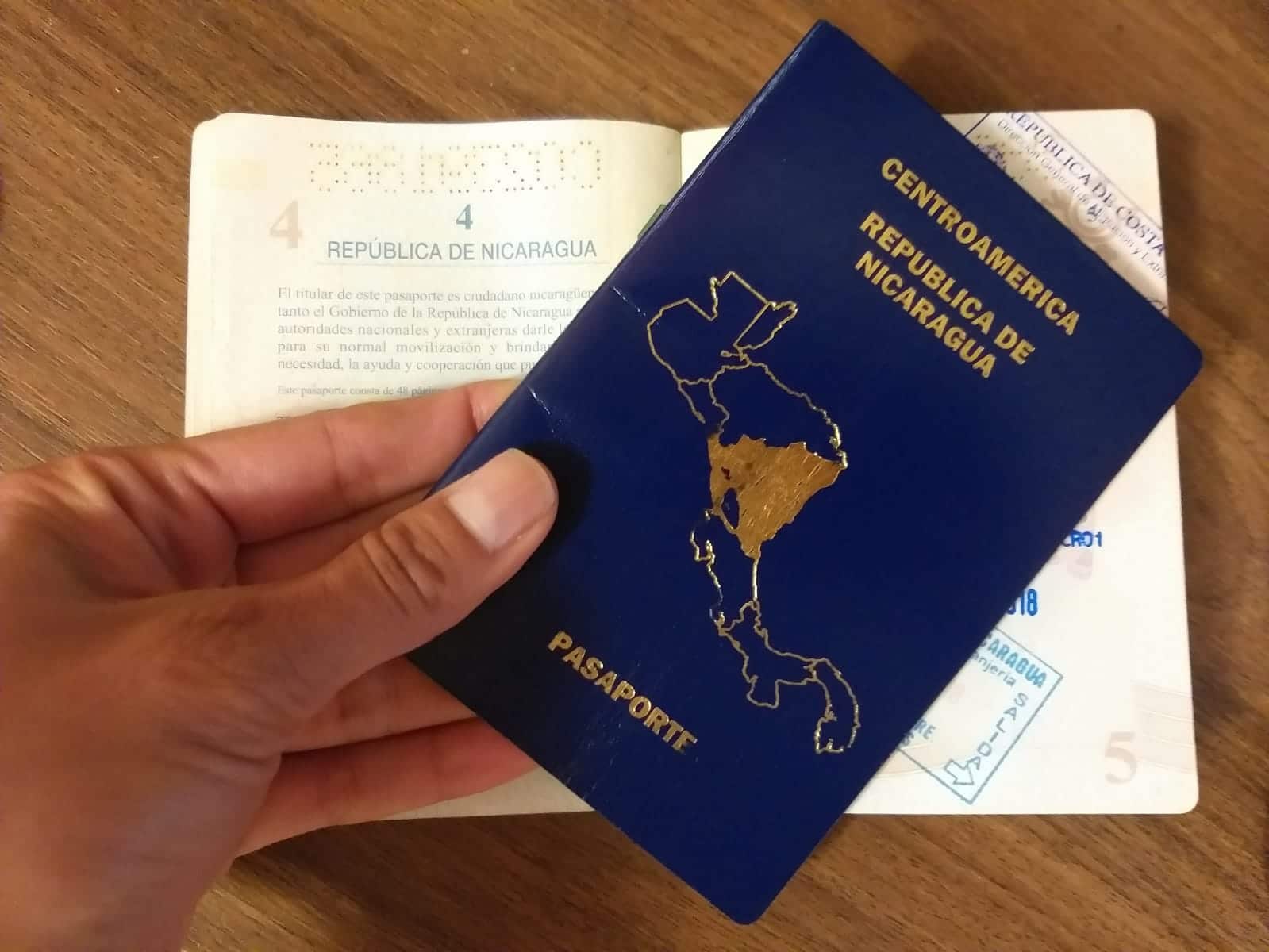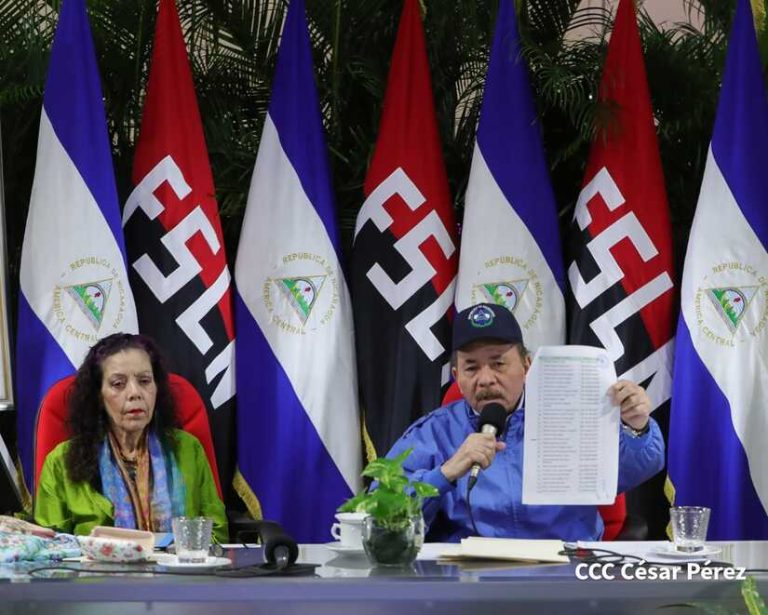2 de marzo 2023

Nicaragua: Public Employees Hindered from Traveling to USA

PUBLICIDAD 1M
PUBLICIDAD 4D
PUBLICIDAD 5D
The dictatorship has warped all hopes for a Nicaragua “where the children go to school healthy.”

Nicaraguan dictator Daniel Ortega, together with his wife and vice president Rosario Murillo, displays the list of citizens they’ve declared “Stateless.” Photo from the Office of the Presidency
The title of this piece refers to the first lines of a 1982 song by Cuban singer-songwriter Silvio Rodriguez that was chorused by the youth over half a continent. It celebrated the Sandinista guerrilla’s defeat of the Somoza dictatorship three years earlier. Those were the years when military governments propped up by Washington, confronted youthful communists engaged in an armed struggle against them and the imperial eagle of the gringos.
“Se partió en Nicaragua
otra soga con cebo
con que el águila ataba
por el cuello al obrero”.
“Another waxed noose / released in Nicaragua, / which the Eagle kept tied / around the worker’s neck.”
After a number of years, Silvio didn’t want to sing that song anymore. The hope that there’d be a Nicaragua, “where the child goes healthy to school / because from that caliber / of justice and affection /no more spurs would be sharpened,” was warped by Daniel Ortega, once a leader of the revolution.
Ortega returned to the presidential seat (2007) as his personal throne, and he’s remained there, at all costs, for 17 years. In order to win the 2021 elections, he imprisoned or forced into exile all his serious contenders. Now he has decreed an end to their nationality and the expropriation of their properties for 222 of the best and bravest Nicaraguans, who shortly before he released from jail and sent into exile. [94 others, most already in exile, would be stripped of their nationality and had confiscated their assets six days later.] Among them are writers, priests, youth leaders, human rights and environmental advocates, company owners, farm leaders, businessmen and several journalists.
Together with his wife, Rosario Murillo, the Ortega government has latched onto power clinging like a cat, because now the only thing left for them are their claws.
“I never imagined that Somoza could be reborn in beautiful Nicaragua, to gun down Sandino once again,” wrote Colombian foreign minister Alvaro Leyva. Meanwhile, the president of that country, Gustavo Petro, stated: “Latin America should be a space without political prisoners and without social prisoners. All violations to human rights should be condemned by the entire international community.”
A few days later, the Colombians offered to grant nationality to Nicaraguan writer Sergio Ramirez, who had been Ortega’s vice president after, together, they helped defeat Somoza. Today, he’s one of his victims. Chilean president Gabriel Boric went further, offering both asylum and nationality to all of those who had been banished and stripped of their statehood. Meanwhile, at least 300,000 Nicaraguans have had to flee their country, which has only six million inhabitants. The majority of those leaving were victims of the Ortega-Murillo duo’s abuses. The democratic forces of Latin America could extend these refugees a much more generous hand.
Nonetheless, seeing leftist governments issue harsh criticisms of a president who claims to be from the left turns Silvio’s song on its head: “The grass has been set ablaze / within the continent / the borders kiss / and begin to burn.” Today, fortunately, it’s not the armed struggle being passed from one country to another, but an intolerance for the political reasoning that justifies the violation of our rights, no matter what political colors the violators wrap themselves in.
Today the choice isn’t between left and right, but between open societies and closed societies, as George Soros explained so well in a recent article. In closed societies, the rights of individuals are sacrificed to protect the State, like the one Ortega runs, along with his allies Putin and Maduro – but also as happens in El Salvador under the right-leaning leader Nayib Bukele. In the open societies, on the contrary, the State exists to protect the rights of individuals.
In his editorial in Confidencial, Nicaraguan journalist Carlos Fernando Chamorro, whose family has been brutally persecuted by the regime, states that Ortega’s feudal move to banish his critics heralds a soon-to-come end to the tyranny. Hopefully large business owners, functionaries and citizens take a firm stand until the dictator leaves, and they sing with Silvio:
“Andará Nicaragua
su camino en la gloria
porque fue sangre sabia
la que hizo su historia”.
“Nicaragua will walk on/ Its road in glory / because it was wise blood / that wrote its history.”
Article originally published in the Colombian newspaper El Espectador.
—–
This article was originally published in Spanish in Confidencial and translated by Havana Times
PUBLICIDAD 3M
Periodista colombiana, directora del Centro Iberoamericano de Investigación Periodística (Clip). Columnista de El Espectador y miembro del Consejo Rector de la Fundación Gabo. Por su destacada carrera periodística, recibió el Premio Maria Moors Cabot en 2007.
PUBLICIDAD 3D